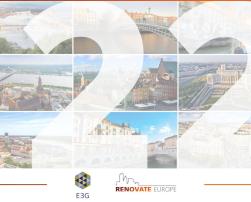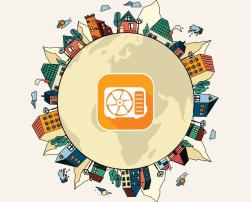
Stocktake on available good planning practices: the IN-PLAN introduction to an integrated vision for energy, climate, mobility, and spatial planning
Integrated planning has gained increasing relevance in tackling complex planning challenges and facilitating the local implementation of actions to meet energy, climate, and sustainability targets. Achieving the EU objectives to become climate neutral by 2050 and enabling a just and inclusive transition requires bringing together all key actors, including local and regional governments, citizens, academia, and businesses. Integrated spatial planning is now a “key agent” and a driver for implementing transformative processes and (innovative) actions and for better management and implementation of a territory’s economic, social, cultural, and ecological policies. Furthermore, integrated plans allow all people to be supported and also include those most vulnerable to sustainability challenges.
Roberta D'Angiolella

Rethinking energy efficiency in time of an energy crisis: Concepts, measures and on-the-ground initiatives towards Just Energy Transition
Habitat for Humanity International Europe and the Middle East Area Office (HFHI EME) published the second volume of articles under the Residential Energy Efficiency Observatory in Central and Eastern Europe.
Ludmila Sadlonova

Energy Service Companies (ESCOs): Navigating Challenges and Opportunities
The survey "The State of Energy Management 2022" has been released and can be downloaded here. As in previous editions, this year it is also focused on Energy Service Companies (ESCOs), the challenges they faced in 2022, their priorities for 2023 and the trends they believe will shape the energy landscape in the upcoming years. In this article, we will have a closer look at the results.
Xavier Novella

Editorial team



